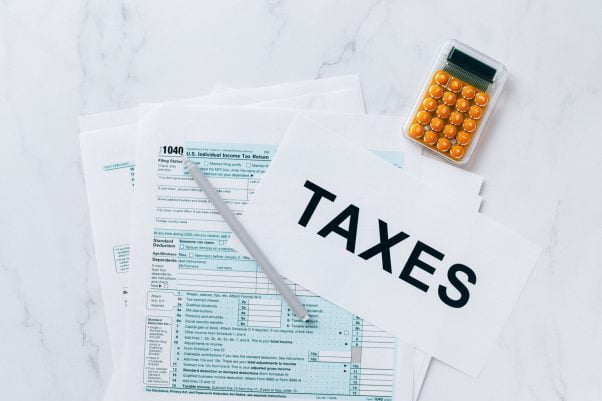Viet Nam, in the eyes of international friends, still exists myths that make many people hesitate to invest in or start a business in Vietnam.
That is indeed a pity, for most of these myths are not correct. Although doing business in Vietnam may have some challenges, a lot of potential opportunities and lucrative upsides are what make more and more foreign investors want to enter this market.
With the hope that such things will not happen again in the future, we, consisting of 3 experts in business start-up, formation and business law with many years of experience in the Vietnamese market, will together debunk some myths about opening a company in Vietnam. And we will try to answer some common business-related questions that a lot of our clients have been asking.
In this summary article, we will give you brief answers to the 5 most common myths about opening a company in Vietnam. Below each answer, there will be a link to the article with more details, an explanation, and related information that we believe you will want to know more about.
Now, shall we begin?
Table of Contents
You need to have a Vietnamese partner for opening a company in Vietnam
The truth is: Opening a company in Vietnam does not always require a Vietnamese partner.
Many foreigners still mistakenly believe that having a Vietnamese partner is one of the must-haves when you intend to set up a company in Vietnam. That is not true. You can open a business with 100% foreign capital and 100% foreign ownership in Vietnam in several business lines. Of course, as long as you always comply with local regulations and Vietnamese laws.
However, there are things you need to know before opening a company in Vietnam, that is, “conditional” business lines, which will need you to comply or apply a certain condition before you are allowed to do business and invest in that field in Vietnam. One condition is, that some businesses will require you to have specific additional licenses such as international travel permits, or real estate permits.
The second condition may be that you need to invest in the company a certain amount of capital. This applies, for example, to a real estate business or a travel agency. And another possible condition is, that you have to work with a Vietnamese partner, and this is what you call a “joint venture”.
There is the fastest way for foreigners to legally start a business in Vietnam. That is buying an existing local company from a Vietnamese owner. With this method, they recommend the client to have a Vietnamese set up a company first, then transfer the capital to the foreign investor.
The reason why buying an existing company from a Vietnamese owner has become the most popular way for foreigners to open a company in Vietnam is, that it is faster and takes less effort than opening a foreign-owned company by yourself from the beginning.
And when you decide to receive a company transfer from a Vietnamese owner, there are many things you need to know such as the pros and cons, the laws, and the risks you will face on that matter.
Read a detailed article on the first myth: You need a Vietnamese partner to open a business in Vietnam

In most business lines, opening a company in Vietnam does not require a Vietnamese partner.
A startup in Vietnam must invest 1 billion VND
The truth is: The actual NUMBER for opening a company in Vietnam is not that high.
The investment capital depends on two things: your business plan, and the location in Vietnam where you want to register your company.
The recommended minimum investment for investors is the amount of money that your company will need in the first 9 to 12 months, to pay bills, grow, and survive in a period where there may not be so much revenue yet.
Opening a company in Vietnam in Ho Chi Minh City or Ha Noi usually requires the initial investment capital of around USD 10,000 – USD 15,000 when setting up a business with more flexible business lines to foreign investment for example IT, consultancy, import and export, wholesale type of companies. It’s a bit lower than in Da Nang or Hoi An.
Therefore, when it comes to opening a company in Vietnam, it is not true that you need to have 1 billion VND capital. While there is no specific required capital to register a business, the actual number is not that high.
Read a detailed article on the second myth: You need to invest up to 1 billion VND when opening a company in Vietnam

The amount of investment capital your company needs depends on your type of business and your location.
Procedures for opening a company in Vietnam take ages
The truth is: Opening a company in Vietnam and obtaining IRC and ERC usually takes you 3 to 7 weeks.
However, the time will be longer if your business line requires specific additional licences to operate. In some cases, you can shorten the timeline to 2 weeks but with additional fees in Ho Chi Minh City.
For example, when you want to establish a manufacturing company in Vietnam that’s 100% owned by your existing company in the United States, then they can ask for some documents from the United States like financial statements or a certificate of incorporation of the mother company. All these steps take quite some time, so it’s always good to check in advance and start preparing well ahead of time.
So in summary, this myth is half debunked because there are some exceptions. If you prepare well and you are in a city which is more open to start-ups then it could take 3 to 7 weeks in general.
Read a detailed article on the third myth: Opening a company in Vietnam takes ages

Opening a company in Vietnam usually takes about 3 weeks.
What are the fixed costs of running or opening a company in Vietnam?
The answer is: Opening a company in Vietnam is not expensive. It depends on whether you want to have a company sponsor your long-term visa, or you want to own a business in Vietnam.
Including the legal and tax, what are the fixed costs of running a business in Vietnam?
There is a list of maintenance costs that you need to deal with when opening a company in Vietnam such as additional licence fee, accounting fee, auditing fee, VAT, CAT, registered address fee, etc. And it also depends on what business it is, and how big the investment is.
In addition to the initial tangible asset investment fees, the following are the basic and important types of fixed costs that you need to learn and calculate when you open a company in Vietnam. Those are taxes, cost of business address registering, cost of hiring staff, and audit fees.
Taxes: The costs of running a business in Vietnam include all types of taxes. The typical VAT in Vietnam is 10%, and corporate tax is 20%. But there are some incentives for software companies or incentives in certain provinces in Vietnam where corporate tax could be very low. You can also hire accountants to calculate your taxes starting from VND 10 -15 million per month per position.
Cost on business address registering: the registered address, a location where your business will be addressed. This depends on what business it is, and how big the investment is. For some smaller businesses, you could get a virtual office that could cost around VND 500.000 to 1.5 million a month, it’s kind of cheap.
Cost of hiring staff: In Vietnam, like in other countries, there is a legal minimum salary that you must respect. If you officially hire somebody in Vietnam, you will also need to register them for compulsory insurance which is 21.5% on the employer side and 10.5% on the employee side. Other than that, the salary you need to spend on your staff depends on their position, their skill level, and their experience.
The Audit fee: this cost only applies to foreign-owned companies, which is a yearly financial audit fee. For smaller start-ups, in the beginning, they are not generating cash flow, and there is not so much revenue, the bare minimum costs would be for the office (VND 1 million if it’s a virtual office) and yearly audit (VND 5-10 million per year) with an outsource tax agent (VND 2 -3 million).
So the fixed costs of opening a company in Vietnam aren’t too bad and it’s quite low compared to other countries.
Read a detailed article on the fourth myth: The fixed costs of opening a company in Vietnam are expensive
When you have invested your money into Vietnam, you cannot get it out.
The truth is: It’s not true. As long as you follow the business compliance in Vietnam, you are welcome to get the money out of the country.
This also works as an encouragement for foreign investors to invest in accordance with the regulations and that you work with a capable accountant or tax agent. Because if you follow the legal framework in Vietnam and you paid tax over it, then it should be no problem at all to send your money overseas.

You can get money out of Vietnam, as long as you comply with the government’s regulations on transferring profits abroad.
Opening a company in Vietnam also opens up many opportunities for you to profit and bring your quality products to the public. And bringing profits back home is also a benefit that you can completely get if you comply with the regulations on transferring profits abroad.
Foreign investors can withdraw their initial investment capital in three ways: selling their business and capital to others, lowering the charter capital of their company, and dissolving the company. As long as you can show that you got that money from legitimate sources and can prove that you have paid your taxes in accordance with Vietnamese law, then there will be no difficulties.
In summary, just make sure that you invest in the right way and keep good administration. So, myth number five is busted!
Read a detailed article on the fifth myth: When you have an investment in Vietnam, you cannot get it out
Conclusion
You’ve just found out that when opening a company in Vietnam, you don’t have to have a Vietnamese co-owner, you don’t need an absurdly huge initial capital of VND 1 billion, administration procedures for registering a company don’t take long, and you can absolutely get your money out of Vietnam.
Any country, not just Vietnam, they have a consistent set of laws and policies that enforce obligations and protect the legitimate rights of foreign investors. What you need to do is learn those laws and policies before working in Vietnam. Or you can contact a professional legal consultant to take care of it for you.
Knowing the investment policies in the host country helps you a lot in operating your business smoothly, as well as easier to solve problems when they happen.
As long as you follow the business compliance in Vietnam, you are welcome anywhere.
We are:
- Barney – the host and the co-founder of Bizlen. Barney is a business start-up expert on Bizspective that specialises in business start-up and scale-up consulting.
- Marijn – a co-owner of Bizlen. Marijn specialises in business formation and market entry into Vietnam. Marijn has a Master’s degree in Law and worked in Vietnamese legal fields for many years. Together with Barney, Marijn helped establish over 50 businesses around Vietnam.
- Simon Le – a Vietnamese legal expert. Simon is a qualified lawyer and also a member of the Vietnam Bar Federation. He has 11 years of experience in business law and has many practical strategies when it comes to business law in Vietnam.
This talk show is set up by Bizspective – A platform for business in Vietnam. Bizspective is built so that experts in many different business fields can come to exchange, consult and share useful information about their business fields. They can also provide different services, all in one place.
There are many other features and functions on Bizspective such as free advice section for start-ups, guides on accounting, law, visa, sourcing, blogs, and business for sale, etc. And in the future, there are going to be a lot more things coming up for start-ups, and qualified services in Vietnam. So please continue to look forward to new articles on Bizspective.
